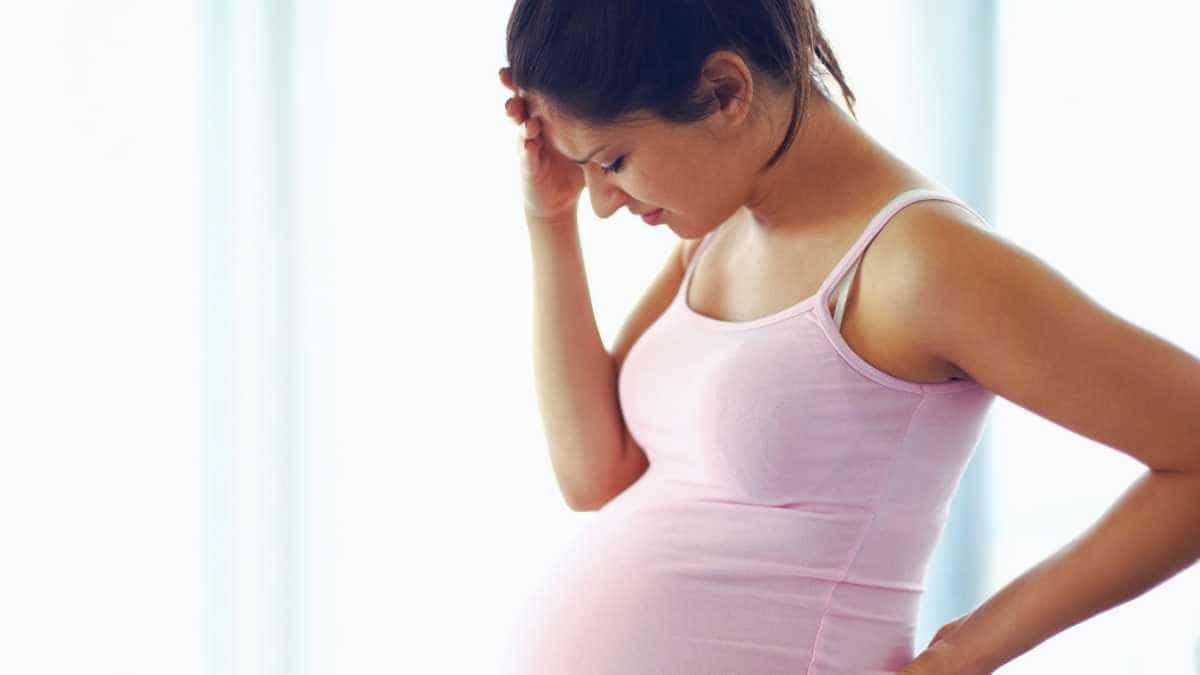Negative body image during pregnancy has been shown to have serious consequences for both the mother and the child. A new study has now uncovered large variations in how pregnancy can affect women’s perceptions of their own bodies, including experiences of negative body image.
Overall, average levels of body image dissatisfaction were found to be similar for pregnant women compared to the general female population, but the study discovered large differences – both positive and negative – on an individual basis. The study, analyzing almost 9,400 responses, is believed to be the first meta-analysis comparing the two groups of women. It was led by academics from Anglia Ruskin University (ARU) and the University of York.
“Due to the impact that body dissatisfaction can have on the expectant mother and fetus, it is vital to understand how body image dissatisfaction may change on an individual basis when women are pregnant. What our study has found is there is no universal experience during pregnancy, and so we shouldn’t assume how people feel. Pressures about how we look are still felt by some people during pregnancy and it is much more helpful to ask how someone is, rather than commenting on their appearance,”
said lead author Anna Crossland, University of York.
After screening 2,017 distinct academic studies, the researchers narrowed their emphasis to 17 that offered evidence that was comparable. Overall, 4,172 replies from non-pregnant women and 5,200 responses from pregnant women were included in the study.
Combination of Complex Factors
The latest study, which synthesized data from several studies, discovered that pregnant women’s general body image dissatisfaction did not differ statistically from non-pregnant women’s. On the other hand, there are notable differences amongst the individual studies that were included in the meta-analysis.
The researchers believe that body image dissatisfaction in pregnancy is made up of a combination of complex factors related to the experiences of each woman — some positive, some negative.
For some women, body image satisfaction will worsen during pregnancy because of “feeling fat,” while others describe feeling that their body is out of their control because they are aware their body will change but cannot stop it. Unrealistic portrayals of pregnant women in the media, often edited to remove uneven skin tone and stretch marks, are also believed to contribute to body image dissatisfaction.
However, other pregnant women report having improved body positivity compared to when not pregnant, as they no longer compare their body to the “thin ideal” body type. Some say the improvement is because they place less attention on how their body looks and more on its functionality, focusing on the fetus’ health and their maternal role.
Depression and Anxiety
Understanding the causes of body image dissatisfaction in pregnant women is critical because it can have serious consequences for both the mother’s and baby’s mental and physical health.
Many pregnant women who express unhappiness with their bodies also experience anxiety and sadness in the postpartum and long term. This may result in poor mother-infant interactions as well as unhealthy emotional, cognitive, and behavioural results for the child.
In addition, body image dissatisfaction has been linked with physical illness as the expectant mother may engage in practices such as unhealthy eating, dieting, purging, and fasting. This can have unwanted negative effects on the fetus, such as low birth weight and premature birth.
“Our earlier work found that women who didn’t feel good about their changing bodies in pregnancy reported lower feelings of bonding with their unborn baby. Therefore, it is crucial that we better understand and support women’s body image during pregnancy, to help women on an individual basis,”
co-author Dr Elizabeth Kirk, Senior Lecturer in Psychology at Anglia Ruskin University, said.
Abstract
Body image dissatisfaction refers to negative thoughts and feelings individuals have towards their own body appearance and this is thought to be affected by the physiological changes that occur during pregnancy. There are two main conflicting theories as to the effect pregnancy has on body image dissatisfaction: 1) Pregnancy related changes are in direct conflict with social ideas of female beauty (e.g. weight gain) and so increase body image dissatisfaction; 2) Due to changes in expectations of bodily appearance during pregnancy, women are liberated from social ideals at this time and thus body image dissatisfaction would decrease. This study aimed to assess these theories by synthesising the current literature. Six databases were searched, and 2,017 study abstracts were screened based on strict inclusion and exclusion criteria. Following screening and quality assessment by two blind reviewers, 17 studies (comprising 17 effect sizes) were subject to full review and meta-analysis following PRISMA guidelines. These studies included cross-sectional, longitudinal and retrospective designs. Results varied with some studies showing women to feel more positive about their body during pregnancy, others showing a more negative body experience and yet others showing no statistical difference. Overall the analysis showed no statistical difference in body image dissatisfaction between pregnant women and non-pregnant women (p = 0.39). Any changes that do occur are heterogeneous and likely to be largely dependent on the individual experience as well as moderator variables and other factors such as differences in methodology of research studies. Studies in this field of research would benefit from more explicit and complete reporting of data and key variables, in order to allow early intervention for women who display body image dissatisfaction in pregnancy.
Reference:
- Crossland, A.E., Munns, L., Kirk, E. et al. Comparing body image dissatisfaction between pregnant women and non-pregnant women: a systematic review and meta-analysis. BMC Pregnancy Childbirth 23, 709 (2023). doi: 10.1186/s12884-023-05930-w
